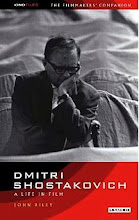
The news that composer Keith Burstein has been bankrupted by his libel action against the Evening Standard raises mixed feelings. On the one hand, a ‘little guy’ has been squashed by the corporate suits (and Associated Newspapers at that). On the other hand it seems like an attempt to rein in critical comment has failed. On the other(?!) hand, what are the limits of a critic's responsibilities?
The backstory: reviewing Burstein’s opera Manifest Destiny, Veronica Lee said it was ‘trite’, ‘horribly leaden’ and ‘unmusical’. And that was just Dic Edwards’ libretto: Burstein’s music was dismissed simply as ‘uninspiring’.
Hey-ho: we all get bad reviews and learn to conquer the urge to fire off an email, explaining just why the perceived ‘faults’ are actually our meisterwerk’s crowning glories, or saying that we agree but that some sheister producer/publisher/singer/fill-in-the-job-title completely shafted us and that only a critic who has no conception of what it is to be creative could fail to recognize the travails of being an artist.
Burstein began life as a conductor of modernist works but as his interest in composition grew, so he became a neo-tonalist, writing stuff like this. He co-formed The Hecklers to argue against the disproportionate public subsidy given to unpopular music, incidentally winning a libel suit against News International, which claimed he disrupted the Royal Opera's production of Gawain. He quickly left the Hecklers and has since come to see his association with the group as a bit of an albatross.
Unluckily, Manifest Destiny, which centres on a suicide bomber, premiered five weeks after 7/7, possibly setting up unintended parallels. Chris Cleave’s suicide-bomber novel Incendiary was ‘lucky’ enough to predate the attacks and, four years later, as the film adaptation is about to be released, it all seems a little distant.
For reference, here’s the Standard's review:
How horribly prescient; Keith Burstein’s opera about suicide bombers receives its world premiere a few weeks after 7/7. What a pity it’s such a trite affair. The heroine, Palestinian poet Leila (Bernadette Lord), leaves Daniel, a Jewish composer, to return to her homeland to become a suicide bomber. Her cell leader Mohammed falls in love with her, sees the error of his ways and, in order to save her, hands Leila over to the Americans. But it’s all too much for her so she tops herself anyway.
The libretto by Dic Edwards is horribly leaden and unmusical and the music uninspiring, save for the odd duet, and full marks to the talented cast of four for carrying it off. But I found the tone depressingly anti-American [there’s a synopsis here], and the idea that there is anything heroic about suicide bombers is, frankly, a grievous insult.
 Burstein, who had previously written about the opera in The Guardian, took this to imply that he found suicide bombers heroic. The Evening Standard argued that it was ‘fair comment’.
Burstein, who had previously written about the opera in The Guardian, took this to imply that he found suicide bombers heroic. The Evening Standard argued that it was ‘fair comment’.Burstein felt there was nothing to do but go to law. He won the right to sue for defamation – to be heard before a jury – and was awarded £8,000. But the Court of Appeal overturned that, judging the original review to be fair comment. And ordered Burstein to return the 8k and stump up the rest of the Standard’s costs. Not having 67 grand to hand, (in the Alice in Wonderland world of law, that almost seems quite reasonable) he was bankrupted.
Burstein has vowed to fight on (with what, I don’t know), and will go to the European Court of Human Rights to argue that the denial of a trial before a jury and the fact that he had to pay the Standard’s costs before all legal options were exhausted was a travesty of justice.
The importance of trial by jury (preferably not by Gilbert and Sullivan) is a whole different topic, so let’s not go there. But it's worth returning to the review and the crucial last line. There's nothing wrong (or actionable) in saying a work of art is rubbish (and hopefully Burstein isn't complaining about that). The BBC review and a passing comment by the Telegraph probably didn't have crowds hammering down the door but artists inevitably expose themselves to that.
But Burstein is saying that if that creation is seen as a manifestation of the artist, then to say that the work supports suicide bombers is, to some degree to say that the man does. How is the critic to unhitch the two?
In a later twist, the new Terrorism Bill outlaws anything that the publisher might reasonably believe will be understood as a direct or indirect encouragement or inducement to the commission, preparation or instigation of terrorist acts. Whether that makes Burstein's work unperformable is a moot (but interesting) point, relying on the producers' (or courts') assessment of whether there are any potential terrorists in the audience who may be fired up by the opera.
The rights to the bankrupt Burstein's works have been taken by the receiver and future royalties will be used to pay m’learned friends. Quite how long this will take I don’t know: there aren’t many composers charging three figures an hour.
In the meantime, Burstein’s website, which included soundclips of his work – and perhaps even of Manifest Destiny - has been taken down. If it’s a result of the judgment, then surely that's an unintended and unfortunate effect.
However, you can (for how long?) see extensive chunks on Youtube.
I’ll risk a critical comment: I’m glad he wrote it. I’m glad I’ve seen it. I’m glad I won’t be seeing it again. Please - don't sue me!

No comments:
Post a Comment